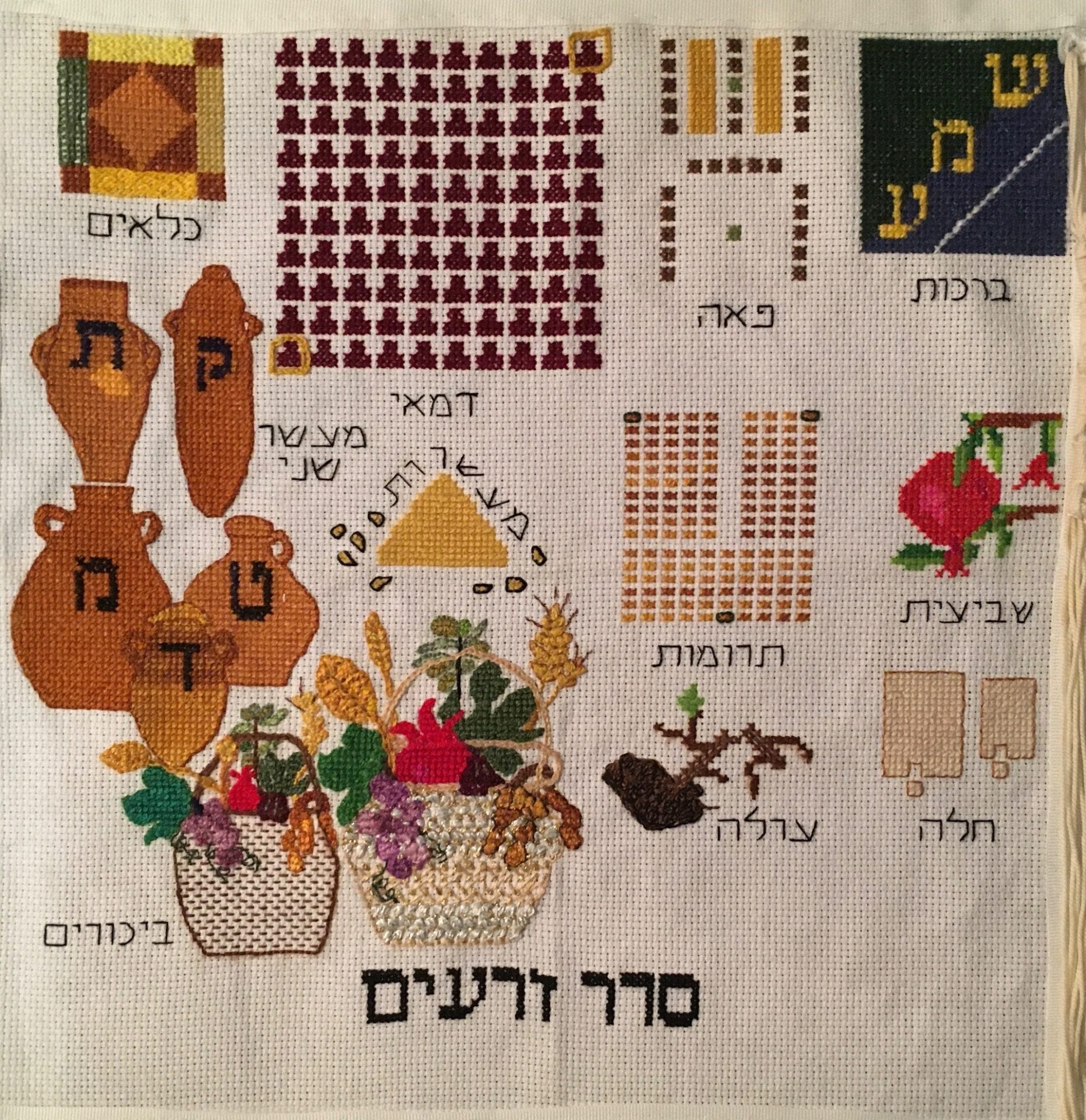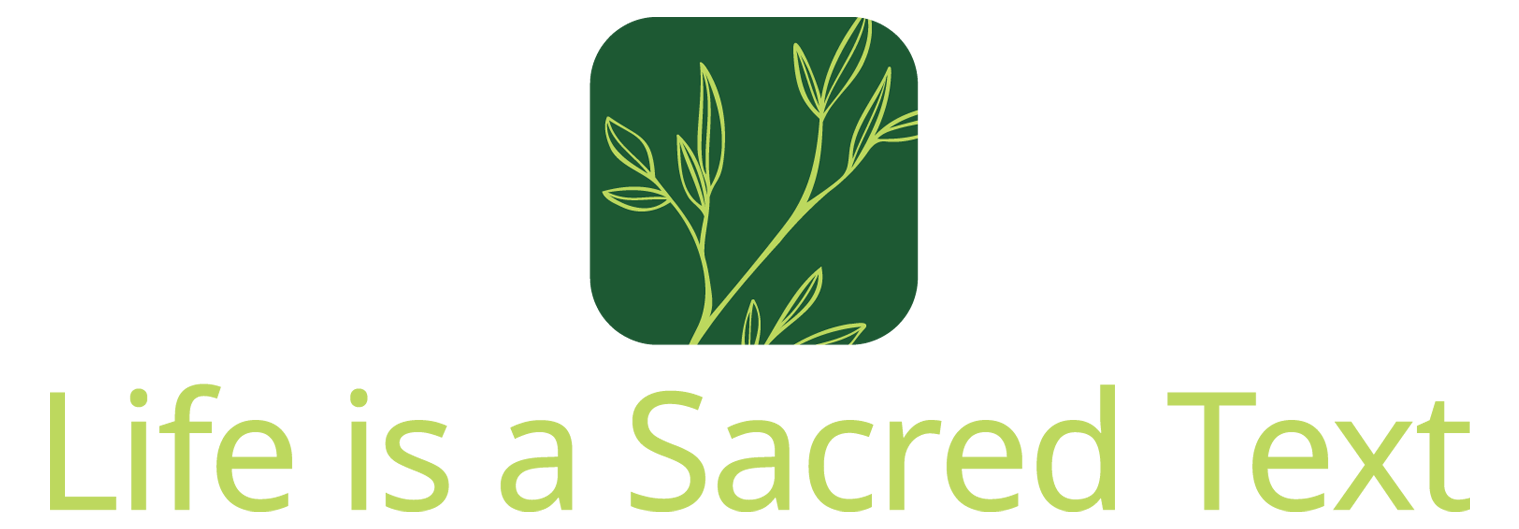Resetting the Board
Systems of Economic Justice in Torah

This is Life as a Sacred Text 🌱, an everybody-celebrating, justice-centered voyage into ancient stories that can illuminate our own lives. It‘s run on a nonprofit, so it’s 100% NAZI FREE. More about the project here, and to subscribe, go here:
We have been working our way through the Book of Leviticus since November, y’all. And today we are going to close it out with our last post of this book—doing a high-level look at systems of economic justice. There are a lot of them! And when they’re taken together, they actually reveal quite a bit about what the Torah is—and the world that it is trying to bring into being.
I’ll note that a lot of the people who are currently trying to impose theocracy on our country seem to skip over this portion of our program. But just because they do, doesn’t mean that we have to.
So!
Let us do a broad overview of a few of the ways that Torah pushes us to work towards a more economically equitable world—as well as noting some of its limitations as we go. It’s not comprehensive, but it’s a start, in any case.
LEAVE SOME BEHIND

When you reap the harvest of your land, you shall not reap all the way to the corners of your field, or gather the gleanings of your harvest. You shall not pick your vineyard bare, or gather the fallen fruit/gleanings of your vineyard; you shall leave them for the poor and the stranger: I God am your God. (Leviticus 19:9-10)
and
And when you reap the harvest of your land, you shall not reap all the way to the corners of your field, or gather the gleanings of your harvest; you shall leave them for the poor and the stranger: I God am your God. (Leviticus 23:22)
Peah means “corner” (1) and here, it refers to not harvesting the corners of the field—but rather leaving the edges for those who are in need to pick.
Leket, "gleanings," refers to whatever ears of grain (or fruits, or etc) fell during the process of harvesting, and shikhah—”forgotten stuff”—refers to a sheaf or two just plain forgotten/left behind accidentally by the harvester. These are things you can’t go back and pick up; you have to just leave them for “the poor and the stranger.”
And, Deuteronomy adds or clarifies, the orphan and the widow.
When you reap the harvest in your field and forget a sheaf in the field, do not turn back to get it; it shall go to the stranger, the orphan, and the widow—in order that the God your God may bless you in all your undertakings. (Deuteronomy 24:19)
There’s also the “tithe for people struggling to get by,” maaser ani, we’ll get into in Deuteronomy—basically, a triennial tithe wherein 10% of produce on the third and sixth of a seven-year cycle is given to those having a hard time and to Levites (who don’t own land.)
I’ve talked about how the categories of widow, orphan and stranger is ancient intersectionality, right? People are impacted uniquely in poverty as a result of their gender and marital status (and are now without protection); as a result of their age and parental status (and are now without protection) (2); and/or because of their nationality, im/migration status—and, as a result, probably their language, access to networks of kin, and thus support during difficult times.
So: Everyone who has resources must ensure that those who are most marginalized are able to access some of their resources. I suspect some land owners were more intentionally, generously “forgetful” than others—but everyone had some basic obligations. And “obligations” is the key word, here. These weren’t Divine Suggestions, they were mitzvot/commandments.
In other words, to paraphrase:
“This is how it will be: Not all your food is yours to eat. Not everything that grows on your land is yours to decide what to do with. Some of it is for anyone in the area who might have a need—especially those whose experiences of poverty are especially difficult.” (3)

There’s an interesting little intellectual loop in here, if you’ll walk with me a sec on this:
There are some who wish to claim that the ger/stranger in these verses (Deuteronomy 24:19 eg) is a Jew by choice, but that’s anachronistic with regards to ancient/biblical Israelite society—as I put in the footnotes last week, as Prof. Shaye Cohen talks about in his The Beginning of Jewishness, during the biblical era, Judean was more of ”an ethnic-geographic term, like ‘Egyptian,’ ‘Syrian,’ ‘Cappadocian.’” So someone from Moab could come to Judea but they wouldn’t “convert” to Judean, they’d just be a non-Judean/a stranger in Judea. Which is why the Torah also says, “for you were gerim in Egypt”—aka, ‘you were non-Egyptians in Egypt.’
And then, during the Hasmonean era—that is to say, during the short reign of the Maccabees after they ejected the Greek-culture Selucid Dynasty, from about 140-37 BCE—we go from “Judean” to “Jew.” That is, according to Cohen, loudaismos (Jewishness) became about “anyone who venerates the God of the Temple in Jerusalem and observes [God’s] laws.” Got it?
And so accordingly, we also see a shift in what ger means-because now you can become a Judean, so to speak. In biblical times, it meant “non-Judean who lives in our community,” and then by the Rabbinic era it meant “convert/Jew by choice.”
These wildly imperfect, but robust systems discussed above meant to ensure that nobody goes hungry are of course key for the biblical ger– the stranger, the non-citizen, the person in your community without local ties who might be dependent on them.
But they're also central to the identity of the Rabbinic ger, the Jew by choice.
Here, a dramatic story that likely dates to the time between the destruction of the Temple by the Romans in 70 CE and the disastrous Bar Kochba Revolt of 132-135 CE:
The Sages taught in a [source contemporaneous to the Mishnah, called a baraita]: With regard to a potential convert who comes to a court in order to convert, at the present time, when the Jews are in exile, the judges of the court say to them: What did you see that motivated you to come to convert? Don’t you know that the Jewish people at the present time are anguished, suppressed, despised, and harassed, and hardships are frequently visited upon them? If they say: I know, and although I am unworthy of joining the Jewish people and sharing in their sorrow, I nevertheless desire to do so, then the court accepts them immediately to begin the conversion process. And the judges of the court inform them of some of the lenient mitzvot and some of the stringent mitzvot, and they inform them of the sin of neglecting the mitzvot of leket, shkicha, peah and maaser ani… (Talmud Yevamot 47a)
I admit, I left in the full beginning of the baraita just because it’s so powerful—imagine this conversation happening a generation after the Great Jewish Revolt failed, after the Temple burned, as life under the Romans is worse than ever.
In any case, what are the mitzvot that get named immediately? The first commandments that get called out as the cornerstones of this new convert’s new Jewish life?
The ones that ensure that anyone who might be hungry is cared for.
Obviously.
These, then, the cornerstone of a Jewish identity.
The core of who we are.
Ensuring that everyone is fed is how we serve God.
One who gives leket, shikchah, peah, and maaser ani— it is accounted to them as if the Temple existed and they offered up sacrifices therein. And one who does not give it — it is accounted to them as if the Temple existed and they did not offer up sacrifices therein. (Midrash Sifra, Emor, Chapter 13)
REBOOT EVERY SEVEN
So. Just like we have a day of rest every seven days, so too do we have a year of rest every seven years. This is called shmita, literally “release.” It’s also called the sabbatical yer or shviit (sheva is seven, and shviit is literally, “seventh.”)
Six years you may sow your field and six years you may prune your vineyard and gather in the yield. But in the seventh year the land shall have a sabbath of complete rest, a sabbath of God: you shall not sow your field or prune your vineyard. You shall not reap the aftergrowth of your harvest or gather the grapes of your untrimmed vines; it shall be a year of complete rest for the land. But you may eat whatever the land during its sabbath will produce… (Leviticus 25:3-6)
Just as humans rest their bodies on the seventh day, the land, too, is allowed to lie fallow on the seventh year. This is, of course, good agricultural sense—letting the land lie fallow is a way to ensure that soil can regenerate its nutrients and not become stripped as, well, it has become today.
But this time of slumber was also re-shaped for justice; all fruits of these plants were declared ownerless, and open season for anyone to take—so the time of regeneration for the land was also one of plenty for those who were not landowners, for those who were hungry.
And since this seventh year was a time to start over, in many ways, debts were cancelled, as well. (4) A new start.
Hazzan Jessi Roemer wrote this gorgeous song about the shmita year, translating the verses in the Torah into Ladino, a Judeo-Spanish language of Sephardi Jews.
LIBERATION ONCE A GENERATION
And then there’s Jubilee/Yovel, which, truly, is better than anything we have in our culture here in 2023.
You shall count off seven weeks of years—seven times seven years—so that the period of seven weeks of years gives you a total of forty-nine years. Then you shall sound the shofar/ram’s horn loud; in the seventh month, on the tenth day of the month—Yom Kippur—you shall have the shofar sounded throughout your land and you shall sanctify the fiftieth year. You shall proclaim liberty/dror/דרור throughout the land for all its inhabitants. It shall be a yovel for you: each of you shall return to their holding and each of you shall return to their family. (Leviticus 25:8-10)
Every 50 (or 49—there's debate) years, a special year is declared: those indentured and imprisoned (5) are freed, and land reverts back to its original owner.
It's a social rebooting.
Rashi, 11th c. France:
Rabbi Yehuda said, “What is the etymology of the term dror/דרור, liberty? A free person is like a person who may dwell (דור) at an inn — meaning that they may reside in any place they please, and is not under the control of others. (דרור therefore implies liberty of residence.) (Rosh Hashanah 9b).
Ibn Ezra, 12th c. Spain:
The meaning of the word dror is known. It means liberty. As the flying swallow (deror) (Prov. 26:2) refers to a small bird that produces music when it is free. However, if it is taken captive it refuses to eat and starves to death.
Without that social rebooting, there is no liberty. There is eternal captivity.
In 2020, many people saw this video of author Kimberly Latrice Jones (whose books are quite good, I’ll note) giving a history lesson and a game analogy to capture the economic injustices that Black communities in the U.S. face.
“So if I played four hundred rounds of Monopoly with you and I had to play and give you every dime that I made, and then for fifty years, every time that I played, if you didn't like what I did, you got to burn it like they did in Tulsa and like they did in Rosewood, how can [I] win? How can [I] win?"
This is the principle of yovel:
Everybody starts where they start on the board. Some people succeed and amass wealth, others struggle, fall on hard times.
But instead of society leaving those disadvantaged to fall impossibly behind, to become trapped in a many-generations cycle of economic insecurity, there's that reset button at year 49 or 50.
At yovel, all that property I managed to accumulate? Now goes back to the original owners so they get another shot this next cycle, rather than ensuring that the great-great grandchildren of that one rich guy will forever have an unearned advantage.
There's a chance to work and earn wealth. But it's not forever. At yovel, debts are forgiven. Your great-grandchildren don't have to carry them. Every generation gets a clean slate if you inherited that debt. We all start over together.
Prisoners are freed.
I am trying to imagine what a yovel principle could do in the age of mass incarceration.
Since 1970, the US prison population has risen by 700 percent, far outpacing the growth of the general US population or its crime rates.The United States incarcerates more people than any other nation in the world; our country holds 25% of the world’s prisoners, despite representing only about 5% of the world’s population. And Black Americans make up 40% of the incarcerated population despite being only 13% of the United States population; they are imprisoned at 5 times the rate of white Americans.
How many lives would yovel save? How many opportunities would it open?
The spirit of the thing is a slate-wiping, so in my imagination they wouldn't carry the record, especially given how much (often illegal) housing and employment discrimination formerly incarcerated people often experience.
We’re all more than the worst thing we’ve ever done.
A second chance.
Indentured servants are freed– the radical stratification of labor is reworked. Again, some people get a new chance. Some people lose some unearned privileges and now must venture forth on their merit, not grandpa's earnings.

There was social inequality in this system; some people experienced poverty. But we were obligated to take care of them.
(Were their needs adequately met? I do not know.)
Yes, human nature being what it was, the early Rabbis had to create a legal loophole so that people wouldn't stop lending to the poor ('the shmita year is coming up; I'll never see my money again!' 🙄).
But when I think about the intent– and probable impact–of this set of commandments when compared to so many choices that get made in this country? The contrast is staggering.
In the United States, the 10% earning the highest incomes take home nearly half of ALL INCOME.
The richest 10% of all households own more than 70% of all the wealth.
A new billionaire has been created every 26 hours since the pandemic began.
Friends, we can do so much better than what we have now.
We have to fight for it.
This is part of our obligation.
We're all in this together.
🌱🌱🌱🌱🌱🌱🌱🌱🌱🌱🌱🌱🌱🌱🌱🌱🌱🌱🌱🌱🌱🌱🌱🌱🌱
Like this? Get more of it in your inbox every week. 🌱
For free every Monday—sign up at the ‘Subscribe now’ button just below.
And if you become a paid subscriber, that's how you can get tools for deeper transformation, a community for doing the work, and support the labor that makes these Monday essays happen.
A note on the subscription model:
I want my work to be as accessible to as many people as possible, in as many ways as possible. That's why the Monday essays are free, and why we donate subscriptions to anyone for whom paying is a barrier to the House of Study posts.
I also believe people should be paid fairly for their work. Needless to say, these two values sometimes seem to be in conflict, but I do what I can to find a fair balance. I offer many resources for free, and charge for others. When you donate generously or pay at the top of our scale, that helps support the work I do, provides access for those who have fewer resources, pays for the infrastructure and the technical and practical support that it takes to do this, and helps us keep the work sustainable.
And as always, if you want in to the Thursday space but paying isn't for you now, just email support@lifeisasacredtext.com and we'll hook you up.
And if you’d like to underwrite one of these donated subscriptions, you can do so by signing up at one of the higher subscription points.
And if it resonated with you, please share this post.
Sending a big pile of blessings and goodness your way. 💕
FOOTNOTES
Like the corners of a beard/sidelocks that some male Jews leave untouched are peyot,/פֵּאוֹת the plural of peah/ פאה. ↩
A better translation for this word—yatom, definitely means “orphan” now (and is also used to mean: that one sock without a mate) but in the ancient world a better translation may have been, “fatherless child,” since widows were, themselves, so vulnerable. No male protector meant no protector. Ah, patriarchy. ↩
Ultimately, yeah, all of everything really belongs to God, in both biblical and rabbinic thinking. “according to the blessing that God your God has given you,” as it says in Deuteronomy. And YES that’s a whole other author entirely, ↩
Of course, human nature being what it is, both the injunction against selling Year Seven produce and the obligation to cancel loans met the Jewish art of finding loopholes. With regards to the former, farmers in the late 19th c. were barely making ends meet as was, and didn’t want to lose a year’s returns to biblical law. As such, they constructed a legal fiction to technically sell land to a non-Jew, who would then handle all the farming and sales. Technically. Other farms use raised beds instead of farming the land itself for the shmita year—since potted plants are ok—and thus use a technical workaround that allows the land to rest. (According to my wonderful friend Sarah Chandler, kosher certification from the Rabbinate (noting that this produce is not in violation of the shmita laws) will indicate if the produce has passed owners’ hands or is using raised beds.)
And in the very late Second Temple period, the Sage Hillel instituted what’s known as a Prozbul—a Greek loan word that connotes the collection of debts, and is to be deployed against the shmita canceling of said debts—to ensure that loans still happen, and that people don’t withhold loans because the shmita year is coming up and they’re about to lose their money.
[A loan secured by] a prozbul is not cancelled. This was one of the things enacted by Hillel the elder; for when he observed people refraining from lending to one another, and thus transgressing what is written in the Torah, “Beware, lest you harbor the base thought, [‘The seventh year, the year of remission, is approaching,’ so that you are mean to your needy kinsman and give him nothing.” Hillel enacted the prozbul. (Mishnah Shviit 10:3) ↩
And, the Talmud (Kiddushin 22b) and later commentators are clear, this includes enslaved non-Jews as well. YES of COURSE slavery is bad. YES, indentured servitude is bad, YES, we can take the sparks of light from the Iron Age document and do the holy work of reading into it more and more justice. That’s what we do. ↩


